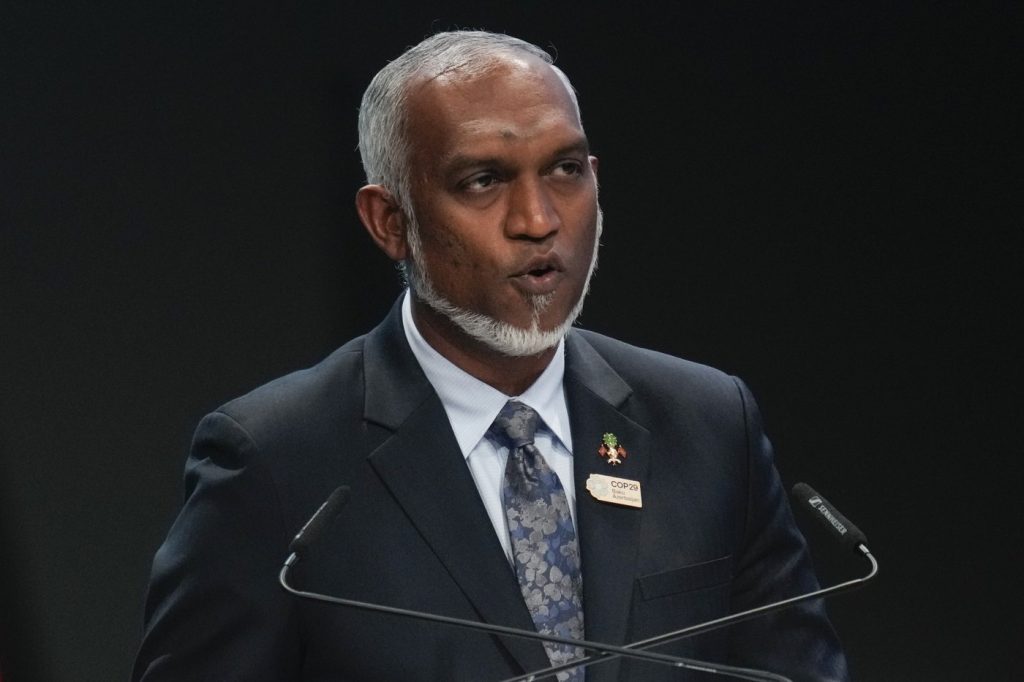MALE, Maldives (AP) On Thursday, President Mohamed Muizzu of Maldives ratified a new media law that has sparked controversy due to its stringent provisions targeting media organizations and journalists. This law grants authorities the power to impose hefty fines and to temporarily or permanently close media outlets if they are found to violate its terms.
The newly enacted Maldives Media and Broadcasting Regulation Act stipulates that journalists face individual fines of up to $1,620, while media companies can be fined as much as $6,485 for contraventions of the law. In addition to financial penalties, the law provides the government with the authority to suspend media licenses pending investigations, initiate legal proceedings to cancel licenses, and even dispatch police to interrupt broadcasts if deemed necessary.
President Muizzu’s office announced the ratification of this law, which was passed by the Maldivian Parliament with an overwhelming majority just days earlier. Out of 93 parliamentary members, 60 lawmakers from the ruling government supported the bill after opposition members were evicted amid intense protests.
Under the regulation, the law imposes a requirement for journalists to uphold the constitution of the nation, adhere to Islamic principles, maintain national security, uphold social values, and protect human dignity and human rights. To enforce these regulations, a seven-member committee will be established to monitor compliance and investigate any alleged violations.
The Maldives, renowned as a luxury tourist destination, has a relatively short history of democracy. Its journey since transitioning to a multiparty democracy in 2008, which marked the end of a 30-year autocratic regime, has been tumultuous. The enactment of this new media law raises concerns about the implications for press freedom and the ability of journalists to operate independently in the face of potential government scrutiny and retribution.
The ratification of the Maldives Media and Broadcasting Regulation Act represents a significant moment in the nation's ongoing struggle regarding democratic governance and media freedom. As the country navigates this complex landscape, the law's potential impact on journalistic integrity and public discourse remains to be seen.











